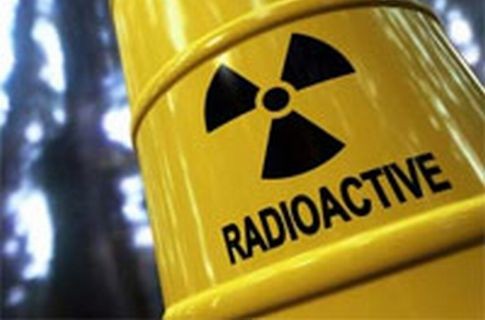Turkey's recent mineral agreement with Niger, the world's fourth largest producer of uranium, might rule out French domination in the industry Anadolu Agency reported.
Niger has become the world's fourth-largest producer of the ore after Kazakhstan, Canada and Australia. However, uranium has not added wealth to the former French colony which remains one of the poorest countries with more than 60 percent of its 17 million people surviving on less than 1US$ a day.
For 46 years, French owned AREVA, the world's second-largest uranium producer which makes one third of its overall revenue with extracts of around 5,000 tons of uranium annually from two large sites, Cominak and Somair in the country's north. However, the amount of tax paid by AREVA to Niger is unknown. Since the expiration of its contract on December 31, 2013, AREVA and the Nigerien government is negotiating to renew the contract, albeit on more favorable terms for Niger. As the bargaining continues, Nigerien people who criticize AREVA's operations as being exploitative, have taken to the streets on several occasions.
On March 11, Turkey's and Niger's mineral research and exploration institutions signed a memorandum of understanding on joint action on mineral training, exploration, extraction and site management. The memorandum is based on a previous agreement signed between Turkey's Energy Ministry and Niger's Mining Ministry in July 2013.
During the signing ceremony, Turkish Energy Minister Taner Yildiz said, "Turkey gives importance to Niger's uranium, as a country building a nuclear energy plant."
Speaking to Anadolu Agency (AA) correspondent following the signing ceremony on Monday, Nigerien Mining Minister Omar Hamidou Tchiana said the agreement opened up Niger's uranium sector to Turkish companies.
Hamidou in reply to whether Turkey could be an alternative to French AREVA company said, "Our negotiations with AREVA are ongoing. Turkey and France do not have to compete. Both nation's companies can run in Niger."
Hamidou said they had no concrete projects with Turkish companies yet.
Criticism of AREVA in Niger remains high while Niger's government continues to negotiate to ensure the AREVA company complies with a mining law signed in 2006. The law stipulates progressive royalty rates (ranging from 5.5 percent to 12 percent depending on the results of the companies) and ensure increased revenue for Niger in uranium exploration. At present, uranium represents over 70 percent of Niger's exports but only 5 to 6 percent of its GDP, according to a 2010 report by Extractive Industries Transparency Initiative (EITI), a global coalition of governments.
- Nigerien civic organizations' reactions -
A civil society organization that advocates for financial transparency in the extractive industry, 'Publish What You Pay' Niamey-based Director Marinke Van Riet voiced that Turkey's potential mining activities in Niger are welcome. "I would say any alternative to AREVA would be a good thing."
"It is estimated that one out of three light bulbs in France is lighted by uranium from Niger," she said and added, "the 40-year history shows that Niger was never given a fair deal and their persistent refusal to comply with national law in the host country shows a lack of respect to their partners."
Another Niamey based organization ROTAB's Director Ali Idrissa told AA that while France lights up with Niger's uranium, Nigeriens use wood for lighting because they lack electricity.
Worldwatch Institute's (WI) 2012 report says due to unreliable and sporadic investment in the sector, Niger is supplied with very little electricity, consuming 55 times less energy per head than South Africans and 100 times less than Americans. Since they are unable to afford generators, Nigeriens use firewood for lighting, heating and cooking.
"AREVA becomes a world-leading company, while Niger remains the poorest state," he asserted.
Idrissa emphasized that the Nigerien government should terminate AREVA's contract, and spoke on the side-effects of AREVA's operations.
"AREVA has left 35 million tons of waste in Arlit city, obliging the occupants to suffer radiation sickness and the region lacks adequate health care facilities," he added.






